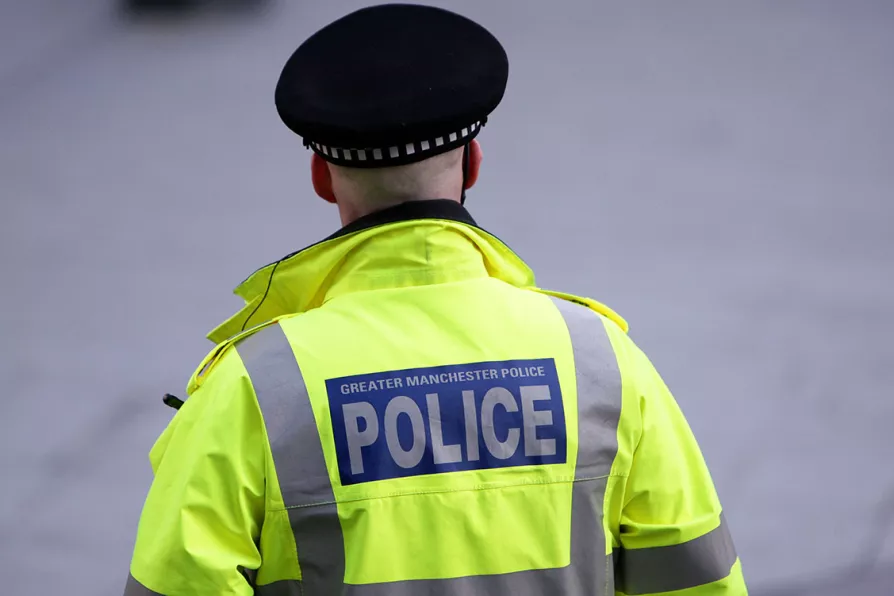
 A police officer from Greater Manchester Police on duty in the city centre
A police officer from Greater Manchester Police on duty in the city centre
MANCHESTER Mayor Andy Burnham has tiptoed cautiously around the video showing a violent incident at Manchester airport where a prone Rochdale man was hospitalised after an armed police officer kicked him twice in the head.
An officer was later suspended from all police duties and the Independent Office for Police Conduct (IOPC) is investigating the incident.
Burnham’s clear expression of concern about the actions of the police was matched with an even clearer sense that the hinterland of this incident — the context in which argument and violence broke out — needed to be clarified.
This contrasts with the knuckleheaded response of Reform UK MP Lee Anderson. He drew on his limited political imagination to argue, it appears, for police violence to be endorsed irrespective of the circumstances — and this homily was garnished with his customary crudities.
The MP for Ashfield said: “The message I’m getting loud and clear from my constituents is that they are fed up with seeing police dancing around rainbows and being nice to people.
“They want the police to do their job. I think these police today should be commended. In fact, I’d give them a medal.”
He then went on to anticipate the IOPC investigation with his own potted account of the incident.
Hundreds responded to the airport incident by picketing Rochdale local police station.
The oppressive strand in British policing is a fusion of anxieties about the rising working-class movement and colonial revolt.
The “father of modern policing” Robert Peel, who founded the Metropolitan Police in 1829, modelled it on the Irish colonial experience and the two-way traffic between the metropolis and colonial empire resulted in a sordid history of repression from India to the West Indies, from Malaya to Kenya and applied in Brixton, Belfast, Tottenham and Toxteth.
What is distinctive about the public response to police actions nowadays is the speed with which people are mobilised to protest. This is due partly to the ubiquity of mobile phones and the role of social media in swiftly disseminating dramatic footage, swift analysis and calls to mobilise.
But the background is the longstanding erosion of trust in police that coexists with a quite sophisticated understanding that although the individual actions of police officers are often the catalyst for protest — and the officers must be held personally accountable — the role of the police is, in the final analysis, to act as the coercive apparatus of the state.
As MP for a former mining area, one might think Anderson had some insight into this factor.
In Manchester airport, like all such places, as well as being equipped with batons and tasers, police are armed with deadly automatic weapons and sidearms, and on high alert for terrorist incidents.
Bear in mind that Manchester was the setting for a terrorist outrage that killed 22 young people. Carried out, incidentally, by Libyan jihadi elements who had earlier operated with the logistical and political support of MI6 in challenging Muammar Gadaffi’s regime in Libya.
There is speculation, both from police sources and clearly expressed by the Rochdale residents, that racism played a part in the airport incident.
The plain fact is that the public perception that the police force is shot through with racism and this, combined with the long history of violent police actions sparking street actions that easily become riots, makes the authorities extremely careful in both their media handling and operational tactics.
It will do them little good. These tensions are rooted in decades of wearying austerity, wage loss and war. Without a fundamental shift in wealth and power to the working class, policing is forever condemned to its repressive role in class conflict.













